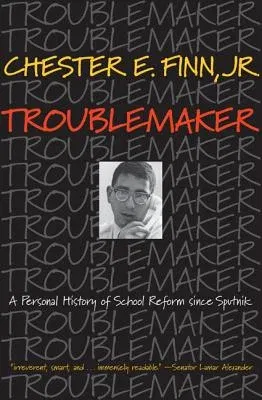Few people have been more involved in shaping postwar U.S. education
reforms--or dissented from some of them more effectively--than Chester
Finn. Assistant secretary of education under Ronald Reagan, and an aide
to politicians as different as Richard Nixon and Daniel Moynihan, Finn
has also been a high school teacher, an education professor, a prolific
and best-selling writer, a think-tank analyst, a nonprofit foundation
president, and both a Democrat and Republican. This remarkably varied
career has given him an extraordinary insider's view of every
significant school-reform movement of the past four decades, from racial
integration to No Child Left Behind. In Troublemaker, Finn has written
a vivid history of postwar education reform that is also the personal
story of one of the foremost players--and mavericks--in American
education.
Finn tells how his experiences have shaped his changing views of the
three major strands of postwar school reform: standards-driven,
choice-driven, and profession-driven. Of the three, Finn now believes
that a combination of choice and standards has the greatest potential,
but he favors this approach more on pragmatic than ideological grounds,
arguing that parents should be given more options at the same time that
schools are allowed more flexibility and held to higher performance
norms. He also explains why education reforms of all kinds are so
difficult to implement, and he draws valuable lessons from their
frequent failure.
Clear-eyed yet optimistic, Finn ultimately gives grounds for hope that
the best of today's bold initiatives--from charter schools to technology
to makeovers of school-system governance--are finally beginning to make
a difference.

